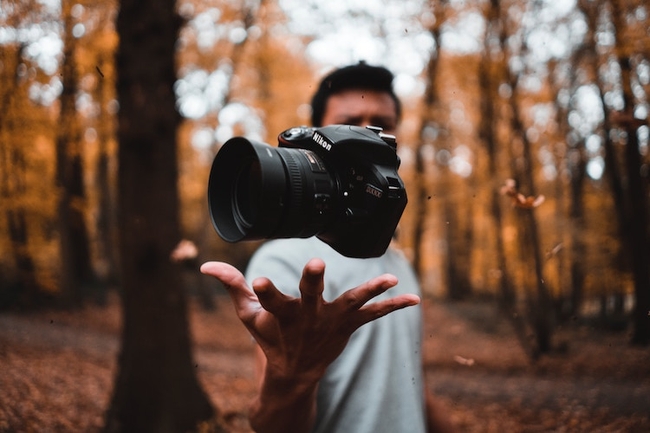Want To Become A Better Photographer? Read This Now!
Apr 6
Photography is one of those sweet endeavors that allow you to delve as much or as little as you want into the finer points of the art. No matter what level you are at, you'll find many tips and advice in this article to help increase your photography skills and enjoyment.
Learn how to snap a picture quickly. Do not wait for your subject to take a certain pause, this might not happen. Take several pictures if you need to. By taking pictures quickly, you will get natural expressions and pauses. If you wait too long, your subject will probably have a rather rigid and artificial expression.
Don't rely on your camera's zoom. Get a close as possible before you start to use your zoom. Zooming in can be helpful, but after a while the picture can get distorted. You're better off getting as close to the subject as you can before you try to zoom in on it.
Be aware that the weather will influence your pictures. You might not realize it when you take the picture, but a dark sky will give a very gloomy atmosphere to your picture. Compose your pictures accordingly and let the weather inspire you for interesting creations. You can also wait for different kind of weather before you take pictures.
Make sure you're holding your camera properly to get the best photograph. You want to make sure you have your arms tucked against your sides and one hand should be under the lens to support it. This will help reduce any movement and insure that you're able to get good photos.
A great photography tip is to simply experiment. Don't be afraid of trying out new things. Try to light your subject in a different way or capture it from a new angle. Trying out new things like this can help you keep a fresh and creative perspective.
Only select the best shots that you have if you are planning on showing your pictures to someone. This will help them form the highest possible opinion of you and your work, which is desirable if you are trying to land a job. Always present your best work to others.
Natural light will always provide you with the highest quality photos. Cloudy days are actually better for shooting than sunny ones, because the clouds act as a natural diffuser, spreading the light out and eliminating shadows and harsh contrasts. Opt for your next photo shoot outside on an overcast day.
Although it may seem obvious, but know how to handle your camera and what happens when you press the buttons on it. Understand what happens when the shutter button is pressed and the timing of the shutter. It really depends on personal preference and there is no right or wrong way, but some things do not vary like keeping the camera perfectly still while taking a photo.
The best way to ruin a photograph is to move the camera while shooting. Keep your camera steady, and give it some support when pressing the shutter button. When talking with professionals, they will tell you to always use a tripod. Sometimes a tripod is just not a practical solution. Use whatever is available like propping the camera against a wall or on top of a fence to take a great shot.
To create an unusual and creative photograph, try changing your perspective. People are used to seeing things from normal human-height and eye-level viewpoints. Getting up high or down low can drastically change how a scene appears. Done right, this will create a startling, memorable shot that your viewers will appreciate.
Be ready to take a picture at all times. This does not mean you should have your camera in hand, this means you should be in the proper state of mind all the time. Look at the world as if you were seeing it through your camera. When you see something interesting, take a picture.
Read the manual for your camera. The manual is often a big, thick bulky brick. They usually get shoved in the back of a drawer or just thrown away. Open it up and read it instead of doing this. This is a great way to learn the ins and outs of your particular camera.
Experimenting with the focus can produce some interesting images. A lower f-stop means that the main subject will be shaply focused in contrast to a blurry background. This is a good technique to use when the subject is up close, such as in portraits. In contrast, increasing your f-stop setting will also increase the field depth and bring all elements of the photograph into focus in a more even manner. Make sure to use this for your landscape photos.
At the beginning of this article, it was noted that whether you're currently a beginner or a more advanced photographer, you can continue to learn new information that will help you enhance and refine your skills. Use the helpful pointers in this article to sharpen your skills and increase your abilities to take the best pictures possible.

